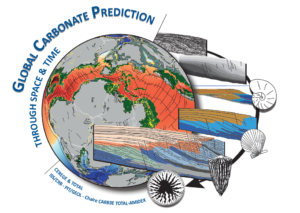Carbonate sedimentary systems, like modern coral reefs, belong to Earth external envelopes and form a unique interface between biosphere, hydrosphere, atmosphere and lithosphere that is in permanent physico-chemical disequilibrium. They consist in solid substratum, mobile or rigid, acting as a major carbon sink, with complex structures and heterogeneities at all scales. Understanding carbonate sedimentary systems consists in fact to study exceptional archives of the Earth System, from Precambrian to present day, including evolution of life, climate and sea level changes. The particular spatial relationships between organic and mineral carbon cycles in the context of global-regional geodynamic and climatic changes have resulted in the preservation of more than 70 % of the global volume of conventional hydrocarbon in carbonate rocks. Managing and securing these important energy resources is becoming critical to support the forthcoming energy transition, but remaining reserves in these complex reservoirs are difficult to detect and predict. Future exploration and production of hydrocarbon from carbonate reservoirs, that would not rely any longer on massive industrial investments, will subsequently become increasingly risky from economical and technological view points. Paradoxically, a successful energy transition will require drastic improvements of our knowledge on carbonates to guaranty an economic hydrocarbon supply. Such developments in carbonate reservoir geosciences will also contribute to address alternative energy challenges, like geothermal energy, thermal storage and co-generation, and critical issues such as water resources, especially in karst systems and CO2 sequestration. Improving geomodels from the past carbonate records will directly impact on our capacity to monitor and predict the evolution of modern coastal carbonate environments (coral reefs, atolls and islands) submitted to global climate changes (ie. sea level rise, ocean acidity…).

CMI GEOLOGIE DES RESSOURCES-DEVELOPPMENT DURABLE
https://carbonatechair.cerege.fr/wp-content/uploads/2021/01/CMI-Géologie-1.pdfSEE MORE



